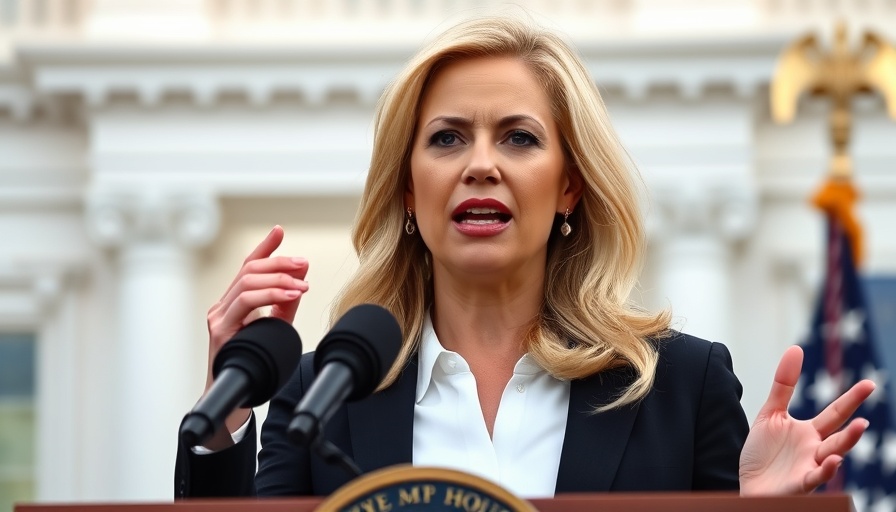
Understanding Current Economic Claims Amid Rising Inflation
The White House has recently declared that the U.S. economy is "back on track" based on newly presented data. However, the stark reality of rising inflation presents a contrasting picture that leaves many questioning the administration’s confidence. Currently, inflation is at a six-month high, and two-thirds of Americans express disapproval of President Trump's measures to combat this financial strain.
Deciphering the Administration's Data Claims
The narrative from the White House portrays a regained economic "swagger," yet a deeper examination of the statistics reveals nuances. While released data points showcase some positive trends, they also mask significant challenges such as increased consumer prices and a slowdown in manufacturing growth. The administration has seized on selective data, including comparisons to previous weeks but has avoided discussing core inflation metrics that exclude essential consumers goods like food and energy.
Economic Discrepancies: Consumer Sentiment vs. White House Claims
A recent Wall Street Journal article underscores a different reality, indicating that actual consumer sentiment has dipped. Reports noted a 19% plunge in the S&P 500 stock index over a short span due to market uncertainty stemming from proposed tariffs. Although some analysts suggest that the worst has passed, they warn against underestimating the looming risks associated with such tariffs, particularly regarding higher consumer prices.
Inflation Continues to Shape Economic Conditions
Even with a slight reduction from the pandemic's peak, inflation has been on the rise for three consecutive months, moving from 2.3% in April to a concerning 2.7% in June. As prices on basic goods escalate, especially in sectors like food—including unprecedented beef price hikes—common Americans are feeling the pinch more than government reports might suggest.
A Cautionary Look at the Path Ahead
As we project into the future, three significant areas must be monitored closely: the impact of tariffs not yet implemented, the response of the Federal Reserve regarding interest rates, and consumer sentiment towards economic conditions as inflation persists. The decision to exclude volatile price categories from official inflation rates could lead to misinterpretations of economic stability, making it crucial for civil rights and immigration attorneys to stay informed about these discussions and how they may influence their clients.
Engaging with Economic Trends: A Call to Awareness
As inflation and economic policies continue to evolve, it is essential for civil rights and immigration attorneys to understand how financial trends intersect with their practice. Awareness of economic conditions can impact legal strategies, particularly when addressing the rights of workers and the implications of economic policies on immigrant communities.
In light of these developments, staying informed and prepared allows attorneys to adapt their advocacy and ensure that clients receive the legal guidance needed to navigate a fluctuating economic landscape.
 Add Row
Add Row  Add
Add 




Write A Comment